I am trying to evaluate the following integral:

I can find the area for the following polynomial as follows:
pn =
-0.0250 0.0667 0.2500 -0.6000 0
First using the integration by Simpson's rule
fn=@(x) exp(polyval(pn,x));
area=quad(fn,-10,10);
fprintf('area evaluated by Simpsons rule : %f \n',area)
and the result is area evaluated by Simpsons rule : 11.483072
Then with the following code that evaluates the summation in the above formula with gamma function
a=pn(1);b=pn(2);c=pn(3);d=pn(4);f=pn(5);
area=0;
result=0;
for n=0:40;
for m=0:40;
for p=0:40;
if(rem(n+p,2)==0)
result=result+ (b^n * c^m * d^p) / ( factorial(n)*factorial(m)*factorial(p) ) *...
gamma( (3*n+2*m+p+1)/4 ) / (-a)^( (3*n+2*m+p+1)/4 );
end
end
end
end
result=result*1/2*exp(f)
and this returns 11.4831. More or less the same result with the quad function. Now my question is whether or not it is possible for me to get rid of this nested loop as I will construct the cumulative distribution function so that I can get samples from this distribution using the inverse CDF transform. (for constructing the cdf I will use gammainc i.e. the incomplete gamma function instead of gamma)
I will need to sample from such densities that may have different polynomial coefficients and speed is of concern to me. I can already sample from such densities using Monte Carlo methods but I would like to see whether or not it is possible for me to use exact sampling from the density in order to speed up. Thank you very much in advance.